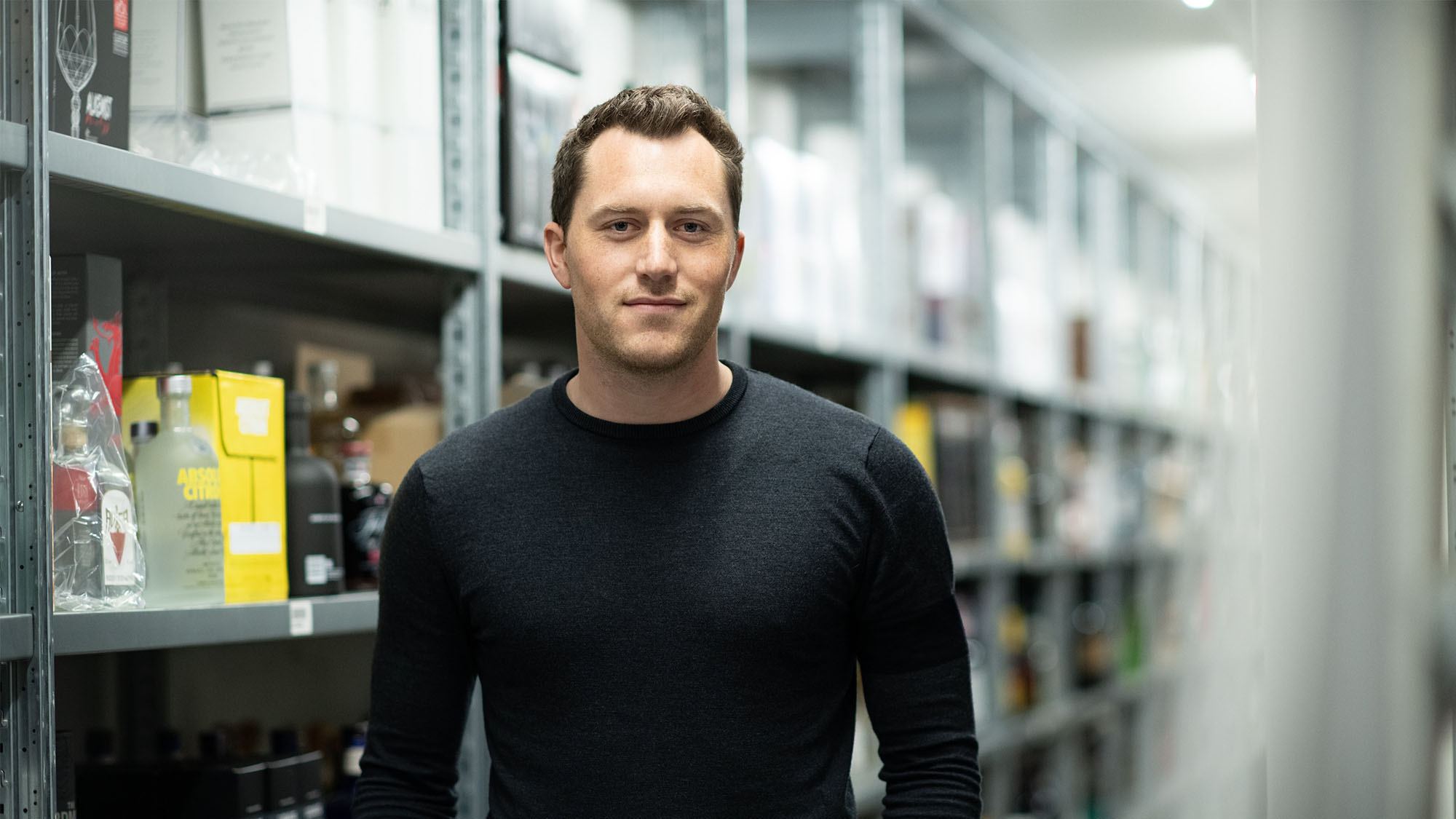AMA: Dan Meade & Laura Westmore, founders of Speccy Media
Great things come in small packages. Speccy Media is a small but ambitious agency with an emphasis on ethical digital product design and marketing,...
Manage your equity and shareholders
Share schemes & options
Fundraising
Equity management
Start a business
Company valuations
Launch funds, evalute deals & invest
Special Purpose Vehicles (SPV)
Manage your portfolio
Model future scenarios
Powerful tools and five-star support
Employee share schemes
Predictable pricing and no hidden charges
For startups
For scaleups & SMEs
For larger companies
Ideas, insight and tools to help you grow

Tomasz Dyl is the founder of GottaBe! - an ethnic and multicultural marketing agency with a real focus on making a difference and inclusivity.
Tomasz shares some words of wisdom for aspiring entrepreneurs and candidly reveals the personal and professional challenges he's faced along the way.
I started my business when I was 17, four years after arriving in the UK. I spoke very limited English and saw many brands wanting to tap into the Polish market and win them as customers.
However, most of them had very limited English. Hence, I came up with the idea to run a marketing agency specialising in ethnic communications.
We started with targeting the Polish diaspora that lived in the UK, but over time, it evolved, and we now offer services in more than 45 languages, helping brands reach out to the 14.6 million ethnic minorities living and working in the UK.
There were a few roadblocks; starting a business during a global credit crunch is tough enough!
Not only that, I was young and inexperienced.
I had a vision for the business, but since I had never run a business before, I didn't know the basics.
Lastly, being foreign and speaking broken English didn’t help either. I had a few doors smacked in my face, but each time that happened, I analysed what went wrong and tried not to make the same mistake the next time round.
Luckily, I was given the opportunity to work with a global financial brand, which motivated me to push forward and helped to secure other accounts, too.
Certainly, having the right people by your side is very important. First, I found it easier to employ friends and family – they understood what I was trying to do and where I was going.
But soon enough, I realised that wasn't the smartest move. They didn't have the expertise that the agency needed, and they weren't fully invested in our mission, as marketing wasn't their passion.
It meant that I had to start again from scratch.
After that, we began focusing on hiring for the agency's requirements. For instance, if we needed a graphic designer, we would look for someone who specialised in that at a high level rather than just finding anyone who could do it.
However, over 15 years in, we're still finding it challenging to find the right people, and I'd say recruitment has been a tough gig for us.
I'd say what sets our agency apart is that our team is so well-built, with a huge focus on teamwork, collaboration, and togetherness.
We offer competitive salaries and a range of benefits to attract and retain our talent, and we often do team-building days, which keeps us aligned on our goals.
Any project that comes through our door is discussed with the whole team, allowing everyone to put their ideas and perspectives forward.
The team is the most important part of the agency because, without them, none of it could happen.
Their hard work and expertise are what get the clients the results. So, any award, regardless of who it is awarded to, is an achievement of all of us and is celebrated as such.
I started my business at one of the worst possible times. We started as a PR agency in the middle of a credit crunch, and as we all know, the PR budget is the first thing to go when revenue is low.
In a way, this was a good thing; I was forced to pivot and experiment with something new. I decided to take the business down the experiential and field marketing route because it was something we could offer which was unique to our competitors.
We've recently gone through another reshuffle and eliminated our 30+ services in favour of four key solutions: Attract, Inspire, Create, and Engage. We found that our clients needed agencies to help them solve their issues rather than executing lots of different services.
Whenever there's a change in our business, it's driven by two things: market trends and the needs of our clients. A perfect example of this is our EDI offering.
Although there's a greater demand for it now and companies are starting to comprehend its benefits, it's still a slow process. Every day, we're working hard to demonstrate the importance of EDI to brands, and also how to implement it correctly.
A few years back, I was requested to share my experience with students since most university professors are incredibly knowledgeable but mainly theory-based, with little practical knowledge to share.
As a former student, I can relate to this issue personally.
I believe that many of the mistakes I made in my early days could have been prevented if my lecturers had practical, industry-based experience to share.
Working at the university has given me a chance to give back to my community by equipping the next generation of marketers with the tools I wish I had. It allows me to scout future talent for my agency.
Also, it allows me to step away from the busy agency life and take a break from my team to see how they manage without me and how I manage without them.
As a business owner, it's easy to get lost in your work and forget about other things, but this role allows me to refresh and take a breather, even if it is just for half a day every week.
Engaging with universities is essential for businesses, and I strongly recommend other organisations to get involved. It provides a platform for collaborating on briefs, recruitment, and Knowledge Transfer Partnerships (KTPs).
Building relationships with institutions and connecting with them will help you to leverage their expertise and resources.
I firmly believe that all businesses, no matter how small or large, should partner with their local universities as it's not just about what you can offer them; they have a lot to offer in return.
The first thing I would say is do your research and do it thoroughly. Look at who's currently in the market and whose offering is most similar to yours.
But don't see them as competition, I recommend you look at what they're doing and be inspired by them. Think about how you can do what they're doing but better.
My second piece of advice is not to rush the hiring process.
Hiring requires a significant investment from your business in both time and resources.
You need to assess your options and be 100% sure before committing to adding someone to your team. Don't forget that you can always find freelancers to temporarily fill roles while you're actively searching for the right person.
The last piece of advice I have is to consider your business name and whether it will still make sense in the future.
For example, GottaBe! is registered under my full name, "Tomasz Dyl PR Ltd", which can be difficult for people to pronounce. So, take some time to think about your company name and consider changing it if necessary.
We don't currently have a share scheme in place, but we do offer staff members the following benefits:
We’ve done things such as tree planting in the past, and this year, we’ll be wrapping Christmas presents to raise money for charity.
At GottaBe! Ethnic, we are unlike any other multicultural marketing agency. We have the expertise to work with brands from any industry and connect them with various ethnic communities. Unlike other agencies that only focus on specific communities, we have a broader approach.
Then what sets GottaBe! Marketing apart, we take a hands-on approach and have our own dedicated in-house Booking & Talent Team. This enables us to find the most suitable staff for a project and quickly respond to any issues that may arise.
In addition, we continuously educate ourselves, monitor our competition, and keep up with the latest industry trends to ensure that our clients receive the best possible results.
We are an IPA-certified agency, and our staff members hold additional qualifications to stay on top of industry developments.
We value diversity. Our team is made up of people from different walks of life, with varying ethnicities, nationalities, and work experiences, which provides us with a wider range of perspectives.
Our commitment to building strong, long-lasting relationships with our clients is another thing that sets us apart. We understand the importance of creating genuine connections with our clients, as we believe it's the key to gaining the best possible results.
For instance, Western Union has been our valued client for over 12 years, while Dorset Tea has been with us for over 7 years.
Mine would have to be Sir Richard Branson. His signature phrase, “Screw it, let's do it” is something I live by as it reminds me of the importance of taking risks.
He also seems like a very hands-on person when it comes to business, which is very similar to me. I don't believe that I'm above any role or job that needs doing here at GottaBe! which is why you'll often catch me at client events and in amongst the action.
Richard also seems like he's very purpose-driven and quite charitable. Again, I'm very similar in this way; I like to give back to the community and those less privileged from the agency and myself personally.
The work we do on the GottaBe! Ethnic side of the business is a huge part of who I am and my purpose. Every single day, the team and I push to drive change and make a difference.
If given the chance to meet him, I would ask him about the lessons he learned from his failed projects and how he would have done things differently.
If I had the opportunity to meet any historical business figure and engage in a one-hour conversation with them, Steve Jobs would be my top pick.
His journey was remarkably fascinating, and his accomplishments were extraordinary. I believe I could gain valuable insights from him.
I would like to ask him about his experience of being ousted from his own company, how he utilised his time away from Apple, what he learned, and how he transformed upon his return to the company.
In addition, I am keen to understand his perspective on the significance of product innovation. I would like to inquire about how he managed to generate a desire for a product that had never been seen or heard of before by consumers.
This is particularly relevant to our work in terms of raising awareness about equality, diversity, and inclusion (EDI). While most brands are familiar with EDI, it can be challenging to create a desire for it.
Great things come in small packages. Speccy Media is a small but ambitious agency with an emphasis on ethical digital product design and marketing,...

We love a startup that sets out to challenge the status quo. We talk to Alexander Curiger, co-founder of Curius, about breathing new life into the...

Martina Angelova and Zoe Burgess are the entrepreneurial duo who co-founded J’aime Original Kombucha after spotting a gap in the market for...